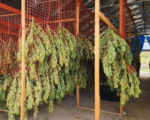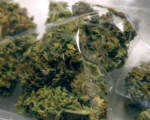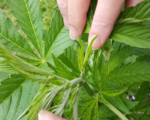Lawmakers in the U.S. Senate just turned down a key push to protect the hemp industry from a sweeping THC ban, leaving farmers and businesses scrambling. This move came as part of a bigger deal to end the government shutdown, but it spells trouble for products like delta-8 edibles that many rely on. What does this mean for everyday users and the economy? Stick around to find out.
The federal government has been shut down since October 1, 2025, caught in fierce battles over taxes, health care, and other hot-button issues. Republicans and Democrats finally struck a deal on November 9, paving the way for a procedural vote that passed 60-40. Eight Democrats crossed party lines to break a filibuster, showing just how divided things are.
At the heart of this resolution is full-year funding for three major bills. These include the Agriculture, Rural Development, Food and Drug Administration, and Related Agencies Appropriations Act, plus ones for military construction, veterans affairs, and the legislative branch. The Senate first passed this package back on August 1 without touching hemp rules. But the version that advanced on Sunday packs a punch for the industry.
This 141-page bill sets aside nearly $26.7 billion in nondefense funding to boost farmers, rural areas, nutrition programs, and food safety efforts. That sounds helpful on the surface. Yet hidden in the details is language that tightens the screws on intoxicating hemp products.
The provision redefines hemp under the Agricultural Marketing Act of 1946. It bans products with more than 0.4 milligrams of THC per container, which critics say wipes out most of the market for things like THC seltzers and edibles.
Rand Paul’s Last-Ditch Fight Falls Short
Senator Rand Paul, a Republican from Kentucky, stepped up with an amendment to strip out the hemp ban. He argued it would crush farmers in his state and beyond. Hemp growers have built businesses around derivatives legalized in the 2018 Farm Bill, but this new rule overrides state regulations and hits consumers hard.
The Senate voted to table Paul’s amendment, effectively killing it. This keeps the ban in place as the bill heads for final passage. Industry groups warn it could destroy jobs and livelihoods.
Paul has been vocal about this for months. Back in July 2025, he filed a bill to raise the federal THC limit in hemp from 0.3% to 1%, aiming to give the industry breathing room. That effort highlighted growing concerns, but it didn’t stop the ban from sneaking into this spending package.
Hemp advocates point out the irony. The 2018 Farm Bill opened doors for hemp as a crop, leading to a boom in products worth billions. Now, this provision delays the ban for one year after passage, but that’s little comfort for those facing uncertainty.
One farmer in Kentucky told reporters his operation could shut down if the ban sticks. He grows hemp for CBD and other uses, but the THC cap threatens his entire supply chain.

Broader Impacts on Farmers and Consumers
This isn’t just about politics; it hits real people. The hemp industry supports thousands of jobs across the U.S., from farms in the Midwest to processing plants on the coasts. A report from the U.S. Hemp Roundtable in 2025 estimates the market at over $28 billion, with intoxicating products making up a big chunk.
If the ban goes through, states with their own rules might clash with federal law. Places like Texas and Colorado have seen hemp shops pop up everywhere, selling gummies and drinks that help with stress or pain. Users say these are safer alternatives to marijuana, especially where pot remains illegal.
But opponents argue these products skirt regulations and pose risks, like untested potency leading to health issues. The Wine & Spirits Wholesalers of America voiced concerns in June 2025 about naturally derived hemp slipping into markets without oversight.
Here’s a quick look at potential effects:
- Job Losses: Up to 100,000 positions could vanish, per industry estimates from July 2025.
- Economic Hit: Rural economies might lose billions in revenue.
- Consumer Shift: People could turn to black-market options, raising safety worries.
The bill’s summary from the Senate Appropriations Committee on November 9 stresses protecting the food supply, but critics call the hemp part a sneaky add-on.
Many wonder why this got bundled into a shutdown-ending deal. Some see it as big pharma or alcohol lobbies pushing back against competition.
What’s Next for Hemp and the Funding Fight
The full Senate could vote on final passage soon, possibly within days. If it clears, the bill goes to the House, where similar hemp-banning language appeared earlier in 2025. President-elect Donald Trump has signaled support for closing what he calls a “loophole” in the 2018 Farm Bill.
Advocates aren’t giving up. Groups like the Hemp Industries Association plan legal challenges, arguing the ban oversteps. They want clearer rules that let safe products thrive.
In the meantime, businesses stockpile inventory and brace for change. One edibles maker in California said he’s pivoting to non-intoxicating CBD, but that won’t replace lost sales.
This saga shows how farm policy can ripple into daily life. From pain relief seekers to small-town economies, the stakes are high.
As the dust settles on this Senate drama, it’s clear the fight over hemp is far from over. Lawmakers balanced reopening the government with tough calls on emerging industries, but at what cost to innovation and freedom? The one-year delay offers a brief reprieve, yet it leaves many hanging in limbo, hoping for a fairer path forward that supports growth without overreach.
Maria Garcia is an award-winning author who excels in creating engaging cannabis-centric articles that captivate audiences. Her versatile writing style allows her to cover a wide range of topics within the cannabis space, from advocacy and social justice to product reviews and lifestyle features. Maria’s dedication to promoting education and awareness about cannabis shines through in her thoughtfully curated content that resonates with both seasoned enthusiasts and newcomers alike.








